CMN 114
Short Management Reports

1. Course Description
This writing intensive workshop course helps students gain the proficiency needed to meet the reporting demands of the contemporary workplace. Participants will learn to analyze their audience and purpose while writing informative and persuasive documents such as instructional reports, personnel reports, informal proposals, and analytical reports. A module on planning, delivering professionally related oral presentations to peers, management and industry partners completes this workshop course.
Last Revised
Delivery
Lab: 3 hours
2. Course Objectives & Learning Outcomes
- To compose a variety of informative and persuasive business reports which are well formatted, effectively designed, purposeful, reader-centered
- To demonstrate the ability to write concisely and clearly, synthesize secondary research, and use persuasive strategies in the development of business documents
- To develop a professional presentation that is skillfully delivered, well organized and supported effectively with visual aids
3. Topics Covered
- Communication Theory
- Format and Purpose of Reports
- Visual Design
- Routine Communication (such as Instructional and Activity Memoranda)
- Prescriptive Communication (such as Personnel Reports and Reprimands)
- Persuasive Communication (such as Proposals and Recommendation Reports)
- Visual Aids
- Oral Presentation
All Topics will be covered, but not necessarily in the order listed above.
4. Teaching Method
Workshops
In this workshop course, students have the opportunity to prepare assignments in class with the guidance and supervision of the instructor.
Graded Assignments
Students will complete a minimum of four written reports plus one oral presentation. Additional in-class work related to report projects may be assigned by the instructor. The weighting of each assignment will be announced by the instructor.
5. Course Materials
Textbooks
Guffey, M.E., Loewy, D., Rhodes, K. & Rogin, P. (2015) Business Communication: Process and Product. Fifth Brief Canadian Edition. Toronto: Nelson.
6. Policy
6.1 University Policies
Students are required to adhere to all applicable university policies found in their Online course shell in D2L and the Course Outline Policies.
6.2 Print and Digital Copying Guidelines:
Toronto Metropolitan University complies with Canada’s Copyright Act which protects both creators/owners and users of copyrighted materials. Students should familiarize themselves with TMU Copyright policies and procedures, and contact the Copyright and Scholarly Engagement Librarian at copyrt@ryerson.ca for questions, concerns and clarification of the copyright rules.
6.3 Turnitin.com
Turnitin.com is a plagiarism prevention and detection service to which Toronto Metropolitan University subscribes. It is a tool that helps instructors determine the similarity between student work and the work of other students who have submitted papers to the site (at any university), Internet sources, and a wide range of books, journals, and other publications. While it does not contain all possible sources, it gives instructors some assurance that students’ work is their own. No decisions are made by the service; it generates an “originality report,” which instructors must evaluate to judge whether something is plagiarized.
Students agree by taking this course that their written work will be subject to submission for textual similarity review to Turnitin.com. All submitted papers will be included as source documents in the Turnitin.com reference database solely for the purpose of comparing the similarity of such papers. Use of the Turnitin.com service is subject to the terms-of-use agreement posted on the Turnitin.com website. Students who do not want their work submitted to this plagiarism detection service must, by the end of the second week of class, consult with their instructor to make alternative arrangements. Even when an instructor has not indicated that a plagiarism detection service will be used, or when a student has opted out of the plagiarism detection service, if the instructor has reason to suspect that an individual piece of work has been plagiarized, the instructor is permitted to submit that work in a non-identifying way to any plagiarism detection service.
6.4 Email Communication
Toronto Metropolitan University requires that any official or formal email communication from students be sent from their official Toronto Metropolitan University electronic accounts.
6.5 Video and Audio Recording
No video or audio recording is permitted in class without the express permission of the instructor.
7. Learning Management System
Toronto Metropolitan University supports Brightspace by D2L as its official Learning Management System. University Policies governing Brightspace have been documented at the Courses @ Toronto Metropolitan University Privacy and Security website.

